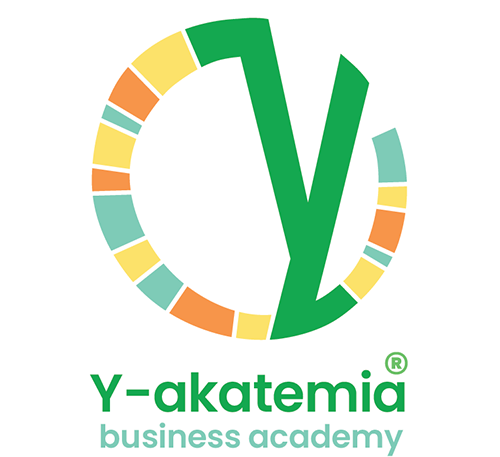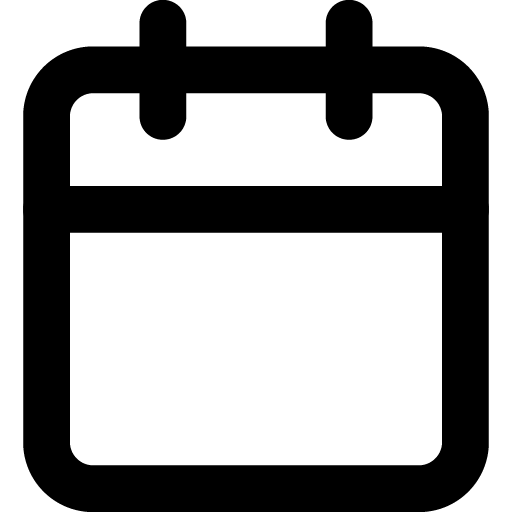Written by: Andrei Potekhin
I remember sitting in McDonald’s trying to decide if I should apply to Karelia UAS’s Business Academy or not. It was two years ago. Now I’m sitting in another cafe reflecting and summarizing the things I’ve learned so your years in a business academy could be at least as wonderful as mine.
I felt that the traditional studying framework with lectures and courses was clipping my wings. I didn’t want to sit and listen, I was eager to run and hustle. That’s why I came to the Business Academy.
But coming to a business academy doesn’t automatically mean becoming an ultra-productive learner and kickstarting super successful projects. It requires some work to be done. The following reading is my attempt to help you do that work faster and get the maximum out of your years at a business academy.
I shaped my studying experience into 6 tips. Adapt what works for you.
Let’s begin!
Study Like a Pro (Tips 1-3)
I think one of the biggest mistakes students can make is to set graduation as the main goal. If your goal is graduation, then you will treat the assignment, projects, readings, and other student activities just as something you MUST do, not what you WANT to do. And if you want to just graduate, why put the effort into doing something excellently if semi-good is enough to pass?
Planning a marketing campaign as an assignment, why would you read a couple of books, a dozen articles, research the latest tech solutions, and write a 15-page report when a 3-page report based on 2 articles is enough to pass? Your motivation to study and become good at something will be much lower. That’s why I encourage you to treat your studies as research.
The first step in doing research is to understand what is the subject of the research. In our case, think, what do you truly want to learn and master? Social media marketing? Company acquisitions? Accounting? Creating YouTube videos?
I understood that my passion, the thing I truly want to research, is product design. I want to learn how to build meaningful IT products, knowing that I can shape my whole study process around it. If I need to read 20 books during my business academy period, I can choose the books that are related to product design. When joining a project, I can take a role that’s similar to a product designer. I can write essays, listen to podcasts, watch educational videos and participate in webinars about product design, the thing I genuinely like. That keeps me motivated. That can make me do a 15-page report, benefit from it, and actually enjoy it.
Here are my three tips on how to approach studying:
- Stop reading randomly, read what matters to the “research”. The amount of good-quality useful books nowadays is enormous. You are not choosing between good or bad, you’re choosing between super good and super good. So, how to choose what to read? Pick the books that are the most relevant at the moment according to the subject of your “research” (the thing you truly want to learn, remember?). People will say: “You should read “The Lean Startup” and “Surrounded by Idiots”. Those books are great!”. They sure are but do you actually want to read them INSTEAD of the ones that will improve your understanding of the thing you want to be good at?
- Forget audiobooks, listen to podcasts. Listening to audiobooks does not replace reading. Period. Taking notes, marking good quotes, leaving bookmarks, and reflecting are among other activities that make us remember the information and learn. Nobody listens to audiobooks sitting with a pen ready to take notes. People do it when driving, washing dishes, or running. Books are too heavy and information-rich to consume in those places. Meaning that most of the knowledge will be missed or forgotten immediately. That’s why I prefer listening to podcasts while walking or running. Podcasts are light. Based on my experience, one or two main ideas or actionable tips per episode. So, listen to podcasts. And of course, choose them according to your “research”.
- Learn specific things with YouTube, Udemy, and Coursera. Books are a great source of general knowledge. They are super good for understanding concepts and the bigger picture. However, if you need to learn something specific you may need a different approach. I think I’ve learned 70% of my skills on YouTube including developing a VR game, prototyping mobile apps, and building websites. YouTube is a great place to get information, but it has a downside. You can easily drop into a “tutorial hole”, starting to learn things because they’re cool, not because you need them. If you want to learn something comprehensively, take a course on Udemy or Coursera. There you can get a well-structured pack of information, avoiding learning non-relevant things. And of course, choose courses according to your “research”.
Hustle Like a Pro (Tips 4-6)
Projects are the heart of business academies. We apply what we’ve learned into action by doing projects. But with all the freedom and independence in a business academy, it’s tempting to commit to too many projects. A really good rule to keep in mind while thinking about joining a project is: “If it’s not a hell yes, it’s a no.” Don’t commit to a project you can’t contribute to. If it’s “kinda cool to do” then it’s a “no”. Start or join projects you are truly passionate about, the ones that make you say “hell yeah!”
If you already know what is the subject of your research, what do you truly want to be good at, then finding a “hell yeah” project is way easier. But if you’re still unsure, keep exploring by trying different roles in action. Trying something in action is the shortcut to understanding whether to actually like it or not.
Projects should progress no matter whether you are just exploring or doing a “hell yeah” thing. Here are three tips that might help.
- Manage projects. It sounds obvious, but it’s still easy to neglect. The two most critical things every project needs are: a project manager and a task board. Without them, your project is a car without wheels, stuck in a swamp, meaning it won’t move. Someone should be responsible for organizing and leading meetings, setting deadlines, reporting to stakeholders, and doing many other organizational activities. There should be one, max two, people in charge of a project. If everyone is responsible, then no one is responsible. A manager ensures that a project is progressing. And progressing happens by completing smaller pieces – tasks. Any team member at any given moment should know what to do. If you don’t know what to do then you will do nothing. Taskboards will help you to stay on track. There are many ways of managing tasks, but I would recommend starting with a Kanban. It’s simple, visual, and clear.
- Stay focused. Focus is a fundamental part of productivity and progress. Working on five projects simultaneously, 75 percent of the work goes to context switching, or, in other words, is purely wasted. Those figures are from the book “Scrum: The Art of Doing Twice the Work in Half the Time” that I highly recommend you to read. This book not only describes the Scrum framework but also explains the fundamental ideas behind it. It helped me to shape my current focusing rules. The first one is “one day, one project”. That means that during the day, I’m focusing on only one project. If it’s developing a mobile app, then I don’t think about my podcast or thesis. There are days reserved for them. Another rule of mine is “to work time-framed, not task-framed”. Having a limited amount of time, like during Pomodoro cycles, helps me focus all my effort on actually completing the tasks, not just on working on them.
- Utilize everything. While being a student and especially studying in a business academy you will generate lots of content. I encourage you to take content creation as one of your side projects. For example, let’s assume that during your studies you will write 10 book essays. This is 10 potential pieces of content. Don’t bury them on your desktop. You can turn 10 essays into 10 blog posts you can publish on Medium, 10 LinkedIn posts, and 10 YouTube videos (just take the text and read it on camera). Yes, it will require some extra effort, but the outcome can be huge. Potential job and collaboration offers, growing your network, and monetization. Think, just by utilizing the content you will be creating anyway as a part of your studies, you can end up with a good following base of professionals and some additional income. And if you will write about the things you’re truly interested in (the “research” thing, still remember it?), you will enjoy it.
Conclusion
I would love to share more learnings in this post, but it’ll take too long. Studying in a business academy is a fantastic opportunity to find the thing you’re passionate about and master it. Use your time wisely. Hopefully, that reading will save you some of it.
Bonus
Here are some tools I can recommend to do the things we discussed above:
- Focus To-Do will keep you concentrated with Pomodoro cycles;
- Notion can become the hub for your “research” that can store notes, essays, and projects;
- Clickup will help you manage big projects;
- PocketBook can make your reading workflow faster (highlighting important parts in the app and exporting them as HTML will make writing an essay much easier);
- Google Calendar. Well, If it’s not on your calendar, it doesn’t exist;
- Yoosh is a messenger with project management features that aims to help students manage studies without hassle. That is my current project.



